Join Cultural Samvaad’s WhatsApp Community
Chatrapati Shivaji Maharaj is a symbol of Maratha and Indian pride, valour and highest standards of kingship. Shivaji’s clarion call for ‘Swarajya‘ has held sway on our minds for over four centuries and continues to inspire Indians.
A prolific communicator, one of his oft quoted works is the letter of protest that he wrote to the Mughal emperor Aurangzeb on the imposition of ‘jaziya‘. This well-reasoned letter drafted by Lila Prabhu in eloquent Persian is a must read for multiple reasons. Not only is it a lesson in magnanimity and religious tolerance but also is a lesson in the lofty principles of kingship and governance that he believed in.
It has been taken (with minor edits) from Sir Jadunath Sarkar’s monumental work on the History of Aurangzeb.
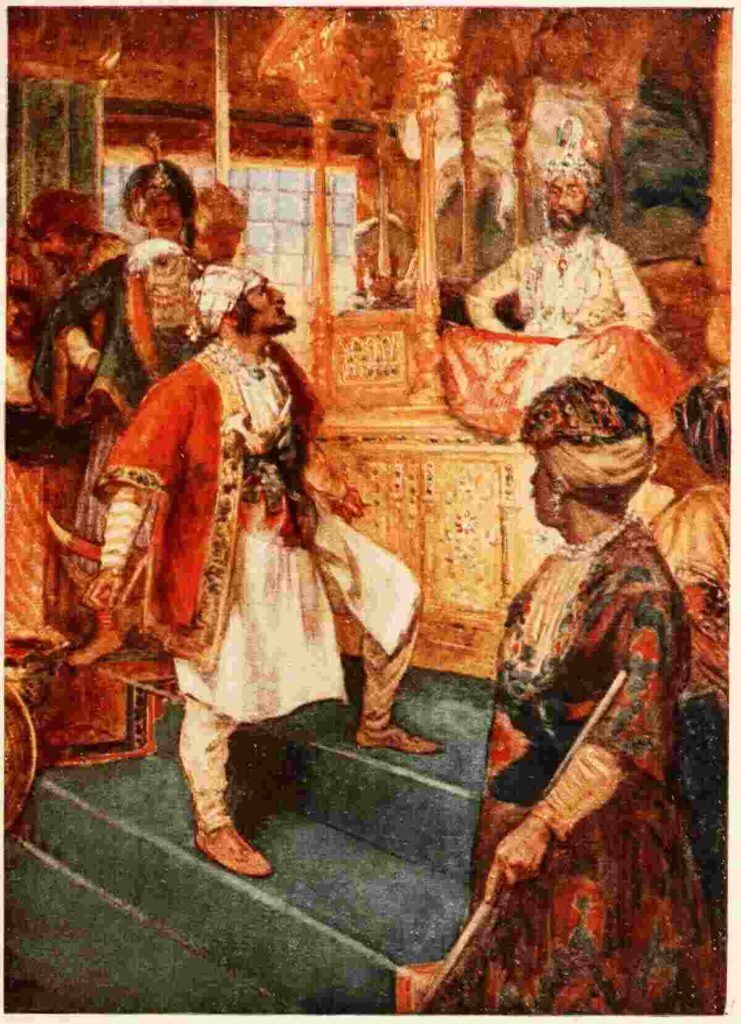
The emphasis and italics have been added by the team.
Text of Shivaji Maharaj’s letter to the Mughal Emperor Aurangzeb
To the Emperor Alamgir:
This firm and constant well-wisher Shivaji, after rendering thanks for the grace of God and the favours of the Emperor, which are clearer than the Sun, begs to inform your Majesty that, although this well-wisher was led by his adverse Fate to come away from your august presence without taking leave, yet he is ever ready to perform, to the fullest extent possible and proper, everything that duty as a servant and gratitude demand of him… It has recently come to my ears that on the ground of the war with me having exhausted your wealth and emptied your treasury, your Majesty has ordered that money under the name of jaziya should be collected from the Hindus and the imperial needs supplied with it. May it please your Majesty!
That architect of the fabric of empire, [Jalal-ud-din] Akbar Padishah, reigned with full power for 52 (lunar) years. He adopted the admirable policy of universal harmony (sulh-i-kul) in relation to all the various sects, such as Christians, Jews, Muslims, Dadu’s followers, sky-worshippers (falakia), malakia, heathens (ansaria), atheists (daharia), Brahmans and Jain priests. The aim of his liberal heart was to cherish and protect all the people. So, he became famous under the title of Jagat Guru, ‘the World’s spiritual guide.’
इस पत्र को हिन्दी में पढ़ें
Next, the Emperor Nur-ud-din Jahangir for 22 years spread his gracious shade on the head of the world and its dwellers, gave his heart to his friends and his hand to his work, and gained his desires. The Emperor Shāh Jahān for 32 years cast his blessed shadow on the head of the world and gathered the fruit of eternal life, which is only a synonym for goodness and fair fame, as the result of his happy time on earth.
He who lives with a good name gains everlasting wealth,
Because after his death, the recital of his good deeds keeps his name alive. (Verse form)
Through the auspicious effect of this sublime disposition, wherever he (Akbar) bent the glance of his august wish, victory and success advanced to welcome him on the way. In his reign many kingdoms and forts were conquered [by him]. The state and power of these Emperors can be easily understood from the fact that Alamgir Padishāh has failed and become distracted in the attempt to merely follow their political system. They, too, had the power of levying the jaziya ; but they did not give place to bigotry in their hearts, as they considered all men, high and low, created by God to be [living] examples of the nature of diverse creeds and temperaments. Their kindness and benevolence endure on the pages of time as their memorial, and so prayer and praise for these three pure souls will dwell forever in the hearts and tongues of mankind, among both great and small. Prosperity is the fruit of one’s intentions. Therefore, their wealth and good fortune continued to increase, as God’s creatures reposed in the cradle of peace and safety (under their rule), and their undertakings succeeded.
But in your Majesty’s reign, many of the forts and provinces have gone out of your possession, and the rest will soon do so too, because there will be no slackness on my part in ruining and devastating them. Your peasants are downtrodden; the yield of every village has declined, in the place of one lakh [of Rupees] only one thousand, and in the place of a thousand only ten are collected, and that too with difficulty. When poverty and beggary have made their homes in the palaces of the Emperor and the Princes, the condition of the grandees and officers can be easily imagined. It is a reign in which the army is in a ferment, the merchants complain, the Muslims cry, the Hindus are grilled, most men lack bread at night and in the day inflame their own cheeks by slapping them in anguish.
How can the royal spirit permit you to add the hardship of the jaziya to this grievous state of things? The infamy will quickly spread from west to east and become recorded in books of history that the Emperor of Hindustan, covering the beggars’ bowls, takes jaziya from Brahmans and Jain monks, yogis, sannyāsis, bairāgis, paupers, mendicants, ruined wretches, and the famine-stricken,–that his valour is shown by attacks on the wallets of beggars,-that he dashes down to the ground the name and honour of the Timurids!
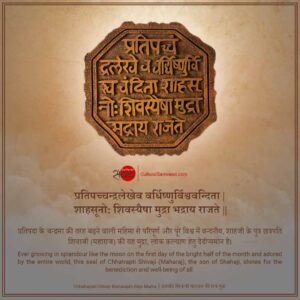 May it please your Majesty! If you believe in the true Divine Book and Word of God (i.e., the Quran), you will find there that God is styled Rabb-ul-ālamin, the Lord of all men, and not Rabb-ul-musalmin, the Lord of the Muhammadans only. Verily, Islām and Hinduism are terms of contrast. They are (diverse pigments) used by the true Divine Painter for blending the colours and filling in the outlines of His picture of the entire human species. If it be a mosque, the call to prayer is chanted in remembrance of Him. If it be a temple, the bell is rung in yearning for Him only. To show bigotry for any man’s own creed and practices is equivalent to altering the words of the Holy Book. To draw new lines on a picture is equivalent to finding fault with the painter.
May it please your Majesty! If you believe in the true Divine Book and Word of God (i.e., the Quran), you will find there that God is styled Rabb-ul-ālamin, the Lord of all men, and not Rabb-ul-musalmin, the Lord of the Muhammadans only. Verily, Islām and Hinduism are terms of contrast. They are (diverse pigments) used by the true Divine Painter for blending the colours and filling in the outlines of His picture of the entire human species. If it be a mosque, the call to prayer is chanted in remembrance of Him. If it be a temple, the bell is rung in yearning for Him only. To show bigotry for any man’s own creed and practices is equivalent to altering the words of the Holy Book. To draw new lines on a picture is equivalent to finding fault with the painter.
In strict justice the jaziya is not at all lawful. From the political point of view, it can be allowable only if a beautiful woman wearing gold ornaments can pass from one province to another without fear or molestation. [But] in these days even the cities are being plundered, what shall I say of the open country? Apart from its injustice, this imposition of the jaziya is an innovation in India and inexpedient.
If you imagine piety to consist in oppressing the people and terrorising the Hindus, you ought first to levy the jaziya from Ränā Rāj Singh, who is the head of the Hindus. Then it will not be so very difficult to collect it from me, as I am at your service. But to oppress ants and flies is far from displaying valour and spirit.
I wonder at the strange fidelity of your officers that they neglect to tell you of the true state of things but cover a blazing fire with straw! May the Sun of your royalty continue to shine above the horizon of greatness!
References
Sarkar, Jadunath (1920), History of Aurangzib: Based on Original Sources. Longmans, Green and Company.


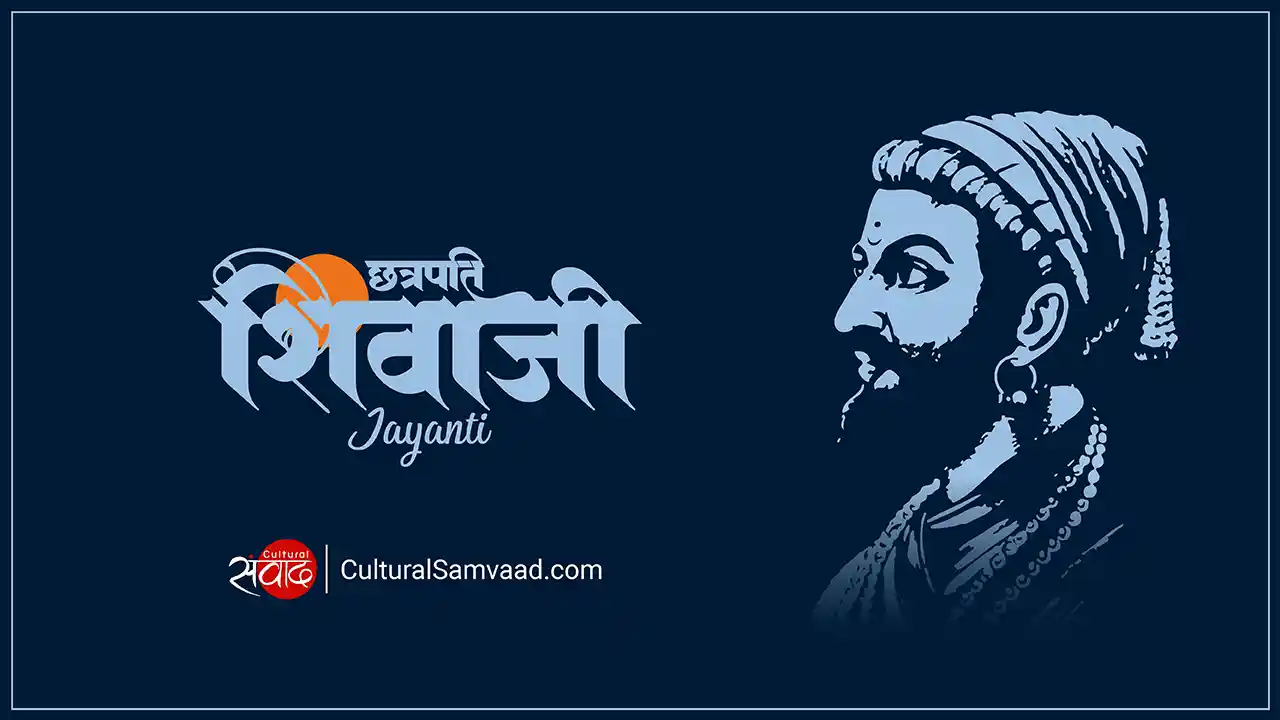
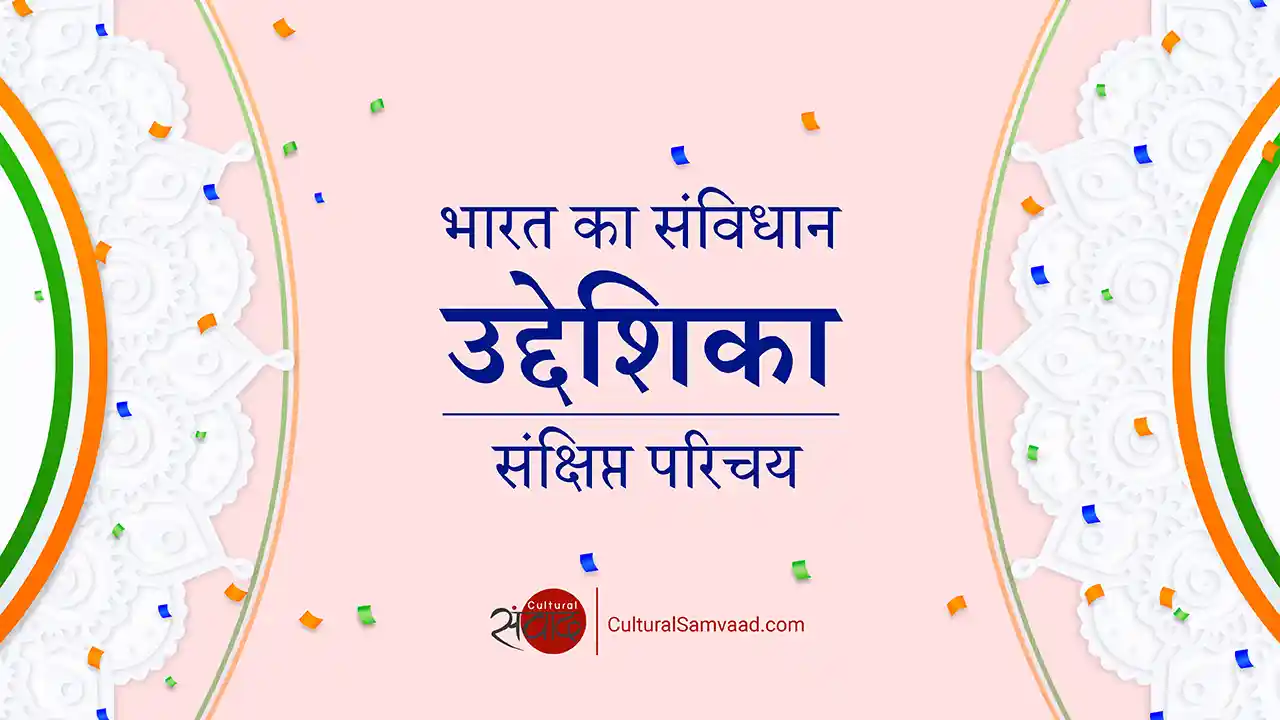
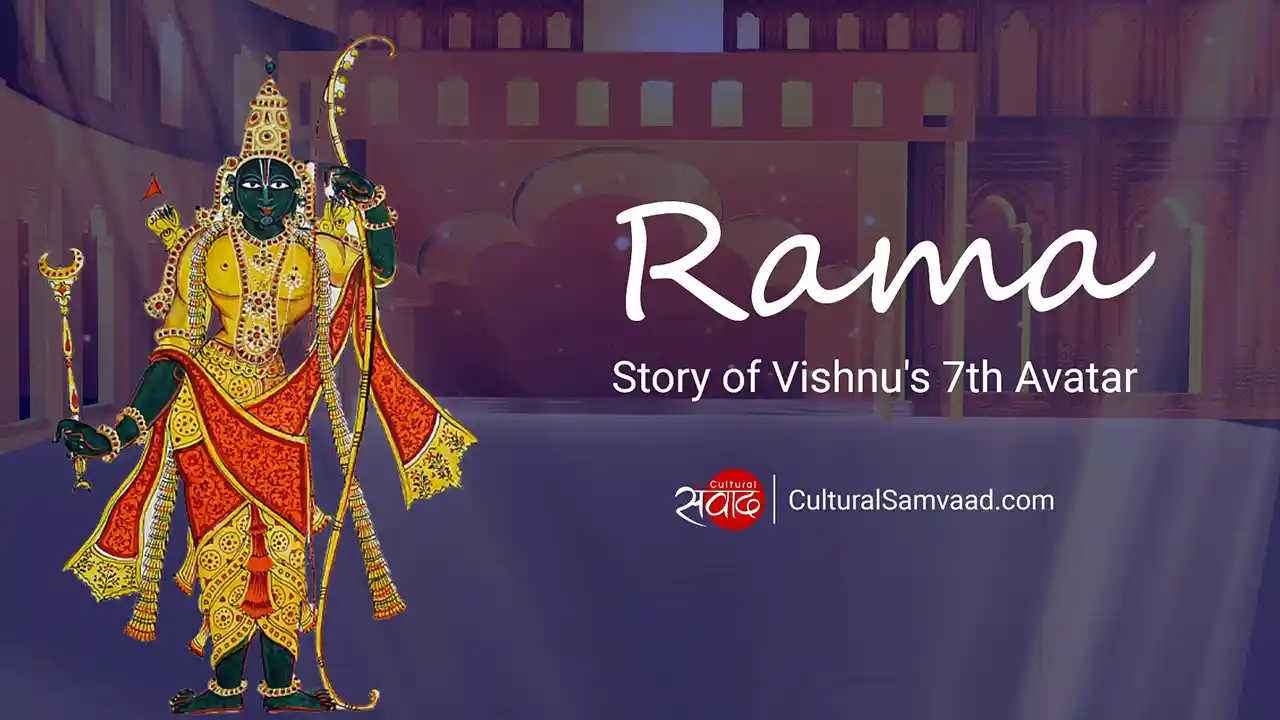
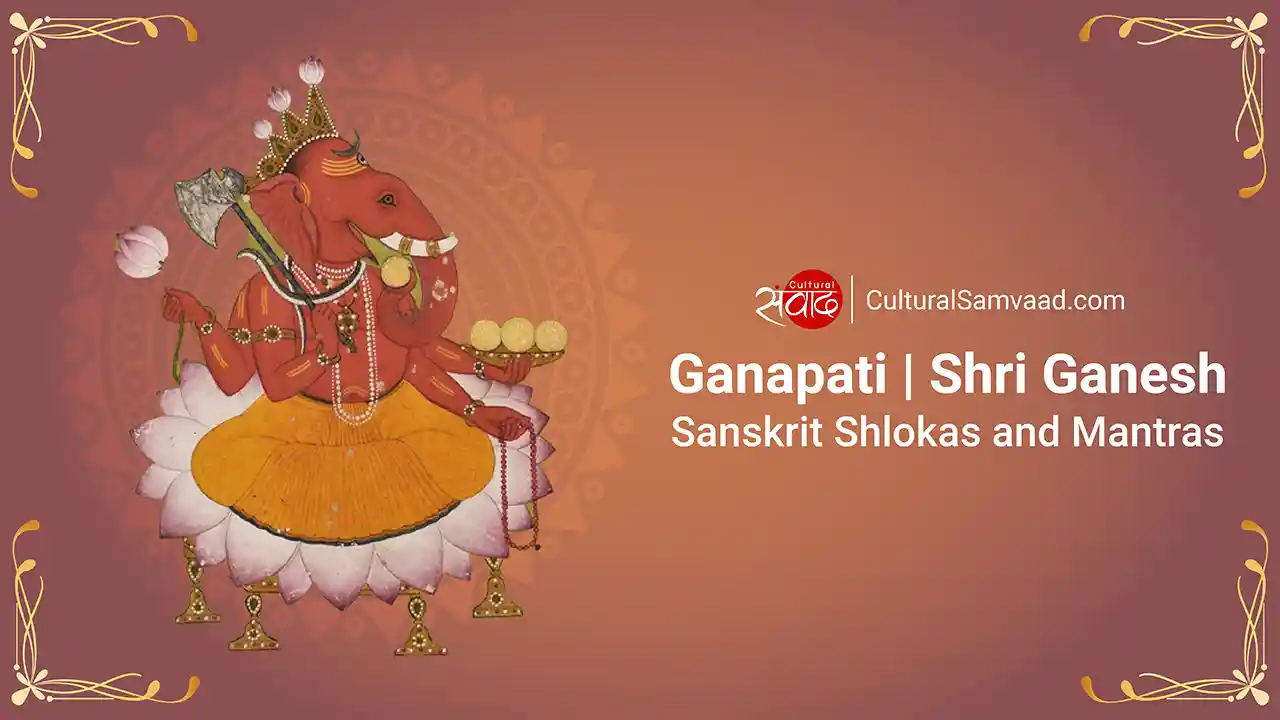
The letter paints Akbar, Jahangir and Shah Jahan bright. Maybe, the subject of discussion is only the “jazia.” THEN IT’S FINE. But beyond that they too, might exempt Akbar, wee not above board in oppression of non-muslims, is what I have understood.
Interesting
१. आत्मविश्वासपूर्ण
२. आॅखे खोल देनेवाला.
३. अभ्यासपूर्ण
जबरदस्त पत्र
Date 14 April 2024
jai bhavani jai shivaji